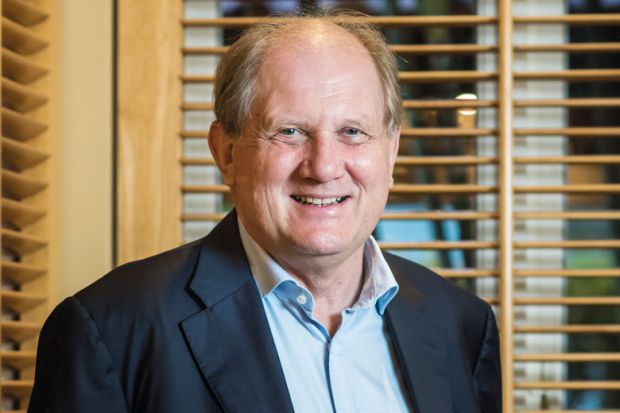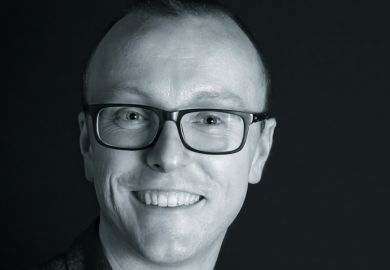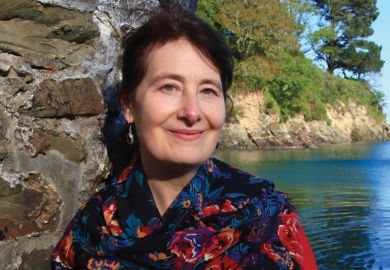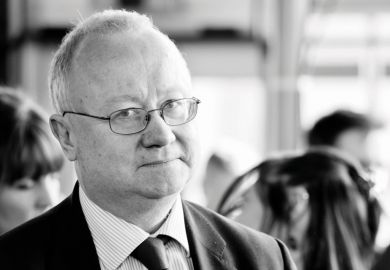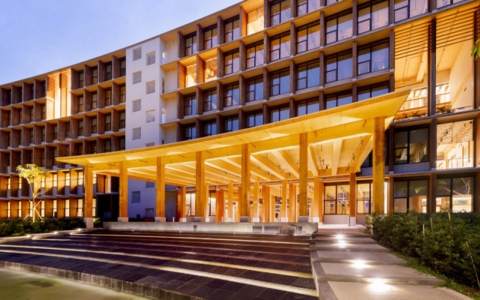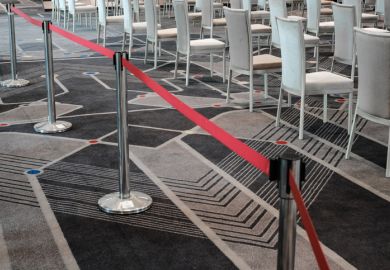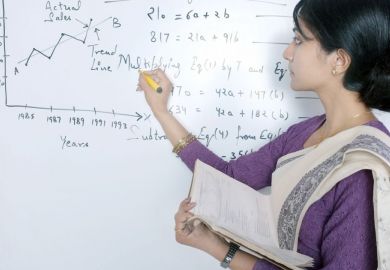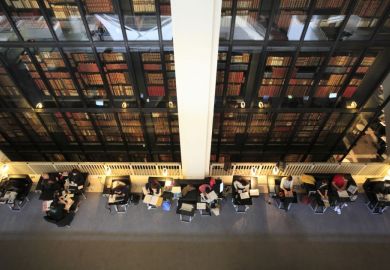Bertil Andersson is president of Nanyang Technological University in Singapore. Professor Andersson held senior positions at Stockholm and Linköping universities before leading the European Science Foundation for three years. He moved to NTU in 2007 and took the helm in 2011. Singapore recently claimed the top two positions in Times Higher Education’s Asia-University Rankings 2016, and NTU has risen 120 places since 2011 in THE’s flagship World University Rankings, where it is now 54th.
Where and when were you born?
I was born in Sweden in 1948, during the postwar period of the baby boom, in a simple working-class family with no academics.
How has this shaped you?
Growing up in a competitive environment led me to take nothing for granted. There is no free lunch. You have to do it yourself. It was my grandmother who encouraged me to get an education. My parents thought that I should start working in the factory instead. As I went against their wish, there was no other option for me but to succeed.
To what do you credit Asia’s surge up the global university rankings?
The surge has to do with Asia’s economic development and its strong belief in the value of education. The progress of Asia also has to do with the stagnation in Europe and America.
Do you think that Asian universities can confidently say they compete with their more established Western counterparts?
Yes, certainly – but they have to be even more confident in taking on the Ivy Leagues. I think the number of Asian universities in the top 100 [of global league tables] is going to double in the next 10 years. And we will see much more of a brain drain from Europe to Asia and the Asian universities will get more international. The English language provides a common platform for collaboration and competition, so even Chinese universities are becoming more English-speaking.
You’ve been vocal in your belief that Europe has stagnated in terms of investment in higher education while Asian countries such as Singapore have acted. Do you still believe this is the case? What could be the consequences for European institutions if they continue to underinvest?
Europe will be left behind if it does not continue to invest. Sometimes I feel that European universities invest in more of the same, and that it is hard to make changes to university profiles in Europe.
You are the third president of NTU, but its first European leader. Did this require some adjustment from you and, perhaps, the institution?
I had a lot of international experience, having worked in many European countries. And since Europe is culturally heterogeneous, I know that to be able to work in the cultural setting that I am in, one needs to have big ears and a flexible mind.
What made you swap Scandinavia for Southeast Asia?
Singapore’s can-do attitude appeals very much to a workaholic like me. And I like it that East meets West here.
What is the worst thing anyone has ever said about your academic work?
I was doing my postdoc in Australia and came across a new photosynthesis model on how components relate to each other. It went against existing dogmas, but I presented my results. The chairman of the session said that my model would best fit in the wastepaper basket. But today, my model is in most textbooks on biochemistry and molecular biology.
If you weren’t an academic, what do you think you’d be doing?
I did a minor in journalism at university, so I might have become a science journalist. Or I could have become a tourist guide as I love to travel and tell stories.
What has changed most in global higher education in the past five to 10 years?
There is more international collaboration. Science has always been international, but universities have become more global. Today, one-third of all papers have authors from more than one country. There has also been a shift in the importance of applied science over basic science. And there is a lot more interdisciplinarity, which is what we need because the solutions to many of the world’s most pressing issues do not lie in single disciplines.
What advice would you give to your younger self?
Believe in myself. Look for the less obvious in the long and winding road rather than rushing to the highway where all the others are.
What do you do for fun?
Being curious, I like to travel. I was not out of Sweden till I was 19. So I was like a sponge, taking in new experiences. I was hitchhiking for six weeks. I love going into the forests and lakes when the midnight sun is up. I was also a cross-country ski racer.
What’s your biggest regret?
I like music, and I regret never having learned to play an instrument. I would have liked to master the guitar.
What advice do you give to your students?
Be active and creative. Don’t expect a barbecue chicken to fly into your mouth. Study hard but have fun.
What kind of undergraduate were you?
I studied hard and spent a lot of time in chemistry labs, often till 9pm – and then I would put on my skis and practise at the racing tracks.
What is the biggest misconception about your field of study?
Most people think my research is too esoteric. They don’t comprehend how the study of a green leaf such as spinach can lead to the discovery of the world’s ultimate solar panels, the future of energy. But today we have artificial photosynthesis – so you see, dreams can come true if we believe in them.
What one thing would improve your working week?
Eight days a week (also one of my favourite songs by the Beatles).
Appointments
Jane Powell has been appointed the University of Surrey’s new vice-provost for education and students. In her newly created position, Professor Powell will assume responsibility for academic affairs and student support services. Currently, she is deputy warden of Goldsmiths, University of London. A clinical psychologist, Professor Powell is a full member of the British Psychological Society’s division of neuropsychology. “I am thrilled to be joining the University of Surrey at this pivotal time, when under [vice-chancellor Max] Lu’s leadership we will be well positioned to build on its great reputation in the context of so many changes in the wider higher education landscape,” she said.
Andrew Tobin has joined the University of Glasgow in the College of Medical, Veterinary and Life Sciences. Professor Tobin, who was previously at the University of Leicester, is leading the new Centre for Translational Pharmacology at Glasgow. He brings to the university a £4.2 million Wellcome Trust collaborative award, funding that will allow for research into the design of the next generation of drugs for the treatment of neurodegenerative diseases such as Alzheimer’s. “I am very excited to bring my research group to the University of Glasgow,” Professor Tobin said. “The world-leading researchers here provide the ideal environment to perform groundbreaking research aimed at transforming how we treat human disease.”
Heriot-Watt University has made two senior appointments for its Malaysia campus. Mushtak Al-Atabi and Dennis Wong have been named senior deputy vice-principal (Malaysia) and deputy vice-principal (Malaysia), respectively.
Julia Smith, Edwards professor of medieval history at the University of Glasgow, has been appointed to the Chichele professorship of medieval history at the University of Oxford.
The University of Winchester has appointed Alan Lovell the new chair of its board of governors.
POSTSCRIPT:
Print headline: HE & me
Register to continue
Why register?
- Registration is free and only takes a moment
- Once registered, you can read 3 articles a month
- Sign up for our newsletter
Subscribe
Or subscribe for unlimited access to:
- Unlimited access to news, views, insights & reviews
- Digital editions
- Digital access to THE’s university and college rankings analysis
Already registered or a current subscriber?
